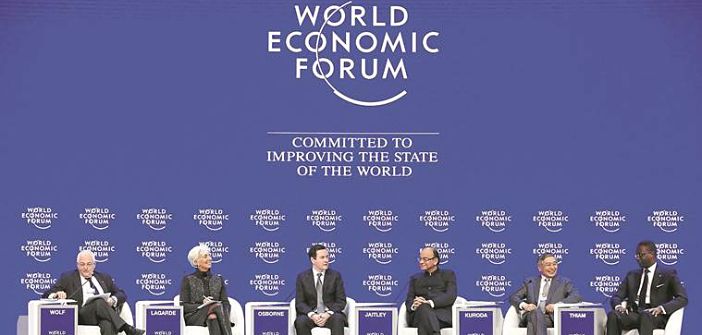At the last Davos Forum, the speakers established a list of the five most urgent challenges to address.
Responding to the fourth industrial revolution, establishing a dynamic global governance system that includes all stakeholders, restoring global growth, reforming capitalism and restoring coherence between the business world and the rest of society, and finally, addressing the increasingly pressing identity crisis.
The context is explosive: the NGO Oxfam, which highlights the growing inequalities on the planet, informs us that eight people hold as much wealth as the poorest half of humanity. Regarding capitalism, it states that “managing the consequences of globalization is a collective failure.”
All stakeholders (policymakers, civil society, intermediaries, companies) must seize these challenges. If not addressed, they will mechanically lead to very serious disorders.
Let’s take the challenge of “Reforming capitalism and restoring coherence between the business world and the rest of society,” which is in fact a prerequisite to solving the other challenges.
How to achieve this goal? Through a form of “Rhenish” capitalism, “German-style social market economy” (editor’s note: from the 1950s-60s), where all “stakeholders” (including employees) are considered, not just the “stockholders” (the shareholders).
This idea is interesting because the social market economy, which is at the heart of Article 3 of the Treaty on European Union, is regularly flouted in favor of an economy whose main flaws are “corruption, short-termism of actors, and mechanisms based on meritocracy that, as such, generate winners and losers.”
Indeed, the former tend to completely disregard the latter.
Hence the need to reform this capitalism by returning to the fundamentals of the European project, thus applying Article 3 of the European Treaty both literally and in spirit.
How to achieve this goal?
The technical solutions are known and public, but it will require courage and charisma.
They concern all forms of dumping (monetary, social, fiscal, and environmental), the strict respect for international social and environmental standards, employee profit-sharing, preservation of common goods (oceans, water, etc.), the energy and ecological transition, reciprocity in trade, and a drastic evolution of current free trade agreements, notably to place trade, environmental, and social clauses on an equal footing.
It is also worth noting the idea expressed by the European Parliament in its resolution of November 25, 2010, proposing a European regulation prohibiting the import into the Union of goods produced through modern forms of slavery, forced labor, particularly forced labor of especially vulnerable groups, in violation of fundamental Human Rights standards.
The European Parliament also proposed the creation of a voluntary identification label at the Union level, certifying that no Human Rights violations were committed during the different stages of the production chain of the concerned products.
Is that all? Of course not. But we could start with that.


